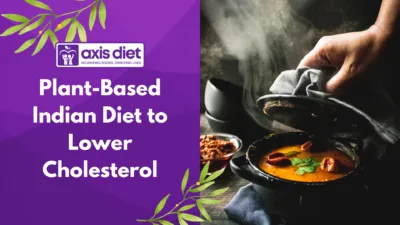Choosing the right cooking oil can significantly impact health and nutrition, especially in Indian cooking. This article delves into the unique attributes of olive oil and mustard oil, comparing their health benefits, culinary uses, and suitability for traditional Indian dishes.
What we’ll learn,
Nutritional Overview of Olive Oil
Olive oil is renowned for its rich nutritional profile, contributing significantly to its status as a preferred cooking oil. Its high content of monounsaturated fats, predominantly oleic acid, forms a large part of its composition. These fats are known to support heart health by helping to lower bad cholesterol (LDL) while potentially increasing good cholesterol (HDL). This fat composition plays a crucial role in reducing the risk of cardiovascular diseases, making olive oil a suitable choice for heart-conscious individuals.
Beyond its fatty acids, olive oil is packed with antioxidants. Vitamin E is particularly abundant, serving as a powerful antioxidant that protects the body’s cells from oxidative stress. Additionally, olive oil contains a variety of other antioxidants, such as polyphenols, which support metabolic health and may help reduce inflammation. These compounds work together to lower the risk of chronic diseases, including heart disease and diabetes, by combatting free radicals in the body.
The presence of vitamins also enhances olive oil’s value. Vitamins A and D, though present in smaller amounts, complement its nutritional profile. Vitamin A supports vision and immune health, while Vitamin D plays a vital role in bone health and calcium absorption.
Using olive oil in Indian cooking can be particularly beneficial for those looking to make healthier choices. It not only enriches dishes with flavor but also adds healthful properties that can contribute to overall well-being. In Mediterranean diets, olive oil is a staple, celebrated not just for its culinary versatility but also for its health benefits. The Mediterranean diet has been linked to reduced risk of heart disease, highlighting the value of incorporating olive oil as a primary fat source.
The health benefits of olive oil extend beyond its composition. Regular consumption may improve digestive health, enhance skin health, and support weight management efforts. Its anti-inflammatory properties have also been noted to help alleviate conditions such as arthritis.
Olive oil can elevate a range of Indian dishes, from drizzles on salads to sautéing vegetables or finishing curries. Its adaptable nature allows it to complement traditional spices found in Indian cooking, making it a worthy consideration in the kitchen. For those interested in heart-healthy eating, understanding the benefits and incorporating best oils for heart health can lead to a more balanced diet and improve overall health outcomes.
Nutritional Profile of Mustard Oil
Mustard oil is derived from the seeds of the mustard plant and is commonly used in Indian cooking. It has a distinctive flavor and a unique nutritional profile that sets it apart from other cooking oils. One of the most notable aspects of mustard oil is its content of omega-3 fatty acids, which are essential for heart health. These fatty acids help to lower inflammation and reduce the risk of chronic diseases, including heart disease.
When examining its nutritional benefits, it’s important to highlight that mustard oil contains a good amount of alpha-linolenic acid (ALA), a type of plant-based omega-3 fatty acid. Regular consumption of these fatty acids can support cardiovascular health by regulating cholesterol levels and improving overall heart function. Furthermore, mustard oil has been linked to better brain health, as omega-3 fatty acids are crucial for cognitive function and mental well-being.
In addition to omega-3s, mustard oil is rich in essential minerals such as calcium, magnesium, and phosphorus. These minerals play vital roles in various bodily functions. For example, calcium is critical for bone health, while magnesium supports muscle function and blood pressure regulation. Phosphorus is essential for energy production and cell repair.
Another valuable aspect of mustard oil is its unique variety of phytochemicals. These bioactive compounds contribute to its health benefits. One key phytochemical found in mustard oil is allyl isothiocyanate, known for its anti-inflammatory and antimicrobial properties. This compound may also aid in digestion and improve gut health.
Moreover, mustard oil is believed to possess antioxidant properties. Antioxidants help combat oxidative stress in the body, potentially reducing the risk of chronic diseases, including certain cancers and heart disease. Including such oils in a balanced diet can enhance overall health.
Culinary uses of mustard oil further showcase its versatility. Due to its high smoke point, it can be used for frying and sautéing dishes. Its pungent flavor can elevate the taste of various Indian recipes, making it a favored choice for cooking.
For those interested in heart-healthy choices, understanding the benefits of different cooking oils is paramount. A comprehensive guide on heart-healthy meals can be found here. This resource can provide useful insights for incorporating healthier oils into daily meals.
Culinary Uses of Olive Oil
Olive oil offers versatility in Indian cooking, adapting well to various culinary techniques. Its flavor profile is often described as fruity and slightly peppery, which can elevate the taste of many dishes. Unlike mustard oil, which has a robust and pungent flavor, olive oil provides a milder taste that can complement Indian spices without overpowering them. This makes it a valuable addition to both traditional and modern Indian recipes.
One of the prominent uses of olive oil is in sautéing vegetables. Its unique taste enhances stir-fried dishes, allowing the natural flavors of the ingredients to shine. A splash of olive oil is excellent for cooking lighter dishes, such as vegetable stir-fries or chicken sauté. The oil’s high smoke point makes it suitable for various cooking methods, including frying. Unlike many other oils, it maintains its integrity and does not break down at high temperatures, making it a healthier choice for deep frying.
Olive oil shines when used as a dressing or marinade. Drizzling it over fresh salads not only adds flavor but also provides healthy fats that can enhance the absorption of fat-soluble vitamins from the vegetables. Mixing olive oil with spices can yield flavorful marinades ideal for meats and fishes, improving their taste while keeping them moist. The oil’s texture aids in evenly coating ingredients, creating a harmonious blend of flavors.
Moreover, olive oil can be utilized in traditional Indian breads such as naan or paratha. Instead of ghee or butter, using olive oil can transform the health profile of these dishes. Its use in dough preparations not only provides a distinct flavor but also helps yield a softer texture.
In addition to cooking, olive oil is an excellent choice for finishing touches. A light drizzle enhances the flavor of cooked dishes, such as dal or paneer tikka, adding a nuanced layer of taste. This application showcases how olive oil can blend seamlessly into Indian cuisine while providing health benefits.
For those looking to embrace healthier cooking methods, olive oil is a fantastic option. It encourages the preparation of more lightly-cooked dishes, which can be especially beneficial in the warm climate of India. By incorporating olive oil in cooking, one can explore the balance of traditional flavors with modern health-conscious trends. For more on how to make better dietary choices, check out this link.
Culinary Applications of Mustard Oil
Mustard oil is an integral part of Indian cuisine, known for its strong flavor and unique characteristics. The oil possesses a pungent aroma that can enhance the taste of dishes, making it a preferred choice for many traditional preparations. It is often used in regions such as Bengal, Punjab, and Gujarat, where it forms the base for a multitude of recipes.
One of the notable qualities of mustard oil is its preservation capabilities. The oil contains high levels of monounsaturated and polyunsaturated fats, which not only add flavor but also help to prolong the shelf life of food. Many households in India utilize this oil for pickling vegetables, ensuring that the spices and ingredients maintain their freshness over time. The ability to safely preserve food makes it a staple in Indian kitchens.
Mustard oil shines in various regional dishes, reflecting the diversity of Indian culinary practices. For example:
- Bhuna Khichdi: A staple in Bengali cuisine, this one-pot dish combines rice and lentils cooked with mustard oil and spices.
- Aloo Posto: A delicious potato dish made with poppy seeds and mustard oil, sought after for its creamy texture and sharp taste.
- Sarson da Saag: A winter favorite in Punjab, this dish features mustard greens cooked down with spices and finished with a drizzle of mustard oil for added depth.
- Biryani and Curries: Mustard oil is often used to enhance the flavor profile of rich biryanis and various curries, providing a unique background note.
The strong flavor of mustard oil can complement many spices typically used in Indian cooking, such as cumin, turmeric, and red chili. Its heat-loving properties make it particularly suitable for sautéing and frying, where it releases a distinct aroma that can elevate the overall sensory experience of the dish.
In addition to its taste and preservation qualities, mustard oil also acts as a flavorful base for marinades, helping to infuse meats and vegetables with spices. Its robust essence can penetrate ingredients effectively, making it an excellent choice for traditional marination methods.
Ultimately, mustard oil serves as more than just a cooking medium; it is an essential element of culinary heritage in India. Its deep-seated roots in regional cuisines highlight the intricate relationship between food and culture. For further insights into Indian culinary practices, consider exploring this guide to Indian cuisine.
Health Benefits: Olive Oil vs Mustard Oil
Both olive oil and mustard oil are renowned for their health benefits, but they vary significantly in composition and advantages, especially in the context of Indian cooking. Understanding these differences can help in making informed choices for healthier culinary practices.
Heart health is a key area where both oils excel, albeit through different mechanisms. Olive oil is rich in monounsaturated fats, particularly oleic acid, which is known to reduce bad cholesterol levels. This can contribute to a lower risk of heart disease. The Mediterranean diet, which prominently features olive oil, has been extensively studied for its heart-protective benefits. Mustard oil, on the other hand, contains omega-3 fatty acids and erucic acid, which may help in reducing high blood pressure and preventing heart ailments. Its high smoke point makes it suitable for various cooking methods used in Indian cuisine.
When it comes to anti-inflammatory properties, olive oil stands out due to its high concentration of antioxidants and polyphenols. These compounds can help combat oxidative stress, reducing the risk of chronic diseases. Regular consumption of olive oil has been linked to decreased markers of inflammation in various studies. Mustard oil is also beneficial in this regard. The presence of alpha-linolenic acid (ALA) can contribute to its anti-inflammatory effects, supporting overall wellness and aiding in conditions like arthritis.
Furthermore, both oils offer unique wellness aspects. Olive oil is often celebrated for its role in skin health. Its hydrating properties and vitamins can enhance skin elasticity and appearance. Mustard oil, however, holds a revered place in traditional Indian medicine. It is frequently used as a natural remedy for ailments like colds and muscle pain, attributed to its warming properties. Moreover, mustard oil is known to stimulate digestion, an essential aspect of maintaining health in Indian diets.
Besides these specific benefits, the choice between olive oil and mustard oil can also be influenced by cooking techniques. Olive oil is typically used for drizzling and light sautéing due to its distinct flavor profile, while mustard oil complements the bold spices of Indian cuisine when used in frying or tempering. For those looking for heart-healthy options, exploring the balance of these oils in your diet could be advantageous.
Both oils can enrich dishes with flavors and health benefits. Choosing between olive oil and mustard oil ultimately depends on individual health needs, culinary practices, and personal preferences. For a deeper understanding of how to integrate healthy oils into various meal preparations, check out this article on best oils for heart health.
Choosing the Right Oil for Your Diet
Choosing the right cooking oil is essential for a balanced diet, especially in Indian cuisine. Both olive oil and mustard oil offer unique benefits. Selecting the appropriate oil depends on individual dietary needs, health conditions, and preferred cooking methods. Understanding these factors is vital for making an informed choice.
When considering dietary needs, it is important to evaluate your overall health and nutritional goals. For individuals focusing on heart health, olive oil is rich in monounsaturated fats and antioxidants, which support cardiovascular well-being. On the other hand, mustard oil contains omega-3 fatty acids, which can significantly aid in reducing inflammation and improving heart function. Thus, those with specific health concerns, such as high cholesterol or heart disease, might find olive oil to be a better choice, while mustard oil could serve those seeking anti-inflammatory benefits.
Health conditions such as hypertension or diabetes also play a crucial role in oil selection. Olive oil is generally considered a healthier option for those managing these conditions, given its lower saturated fat content and potential benefits for blood sugar control. In contrast, mustard oil, with its pungent flavor, might not be suitable for everyone. Individuals who are sensitive to certain compounds found in mustard oil may opt for olive oil instead.
Cooking methods influence which oil you should choose as well. For high-temperature cooking like deep frying, mustard oil is often preferred due to its higher smoke point, making it ideal for frying traditional Indian dishes. For sautéing or salad dressings, olive oil is often favored for its flavor and health properties. Understanding the intended use of the oil can greatly affect the cooking experience and the overall health outcomes.
Regardless of the oil selected, the concept of moderation and balance cannot be overstated. Both olive and mustard oils are calorie-dense, so it is essential to use them mindfully. Incorporating a variety of healthy fats into your diet can also enhance flavor and nutrient absorption. This balance helps maintain overall health and well-being.
To understand the best choices for your specific lifestyle, consider reviewing guidelines for heart-healthy oils. Choosing the right oil is a personal journey that requires careful consideration of your health and dietary context.
Seek Professional Dietary Guidance
Choosing between olive oil and mustard oil can be a complex decision influenced by various factors. Each offers unique benefits for culinary uses and health. If you are considering incorporating either of these oils into your cooking, seeking personalized guidance from a dietary professional can provide clarity and tailored advice. A professional can evaluate your specific dietary needs and lifestyle, offering the right recommendations for integrating olive and mustard oils effectively.
Consultation can help in understanding the nuances between these oils. Olive oil, rich in monounsaturated fats and antioxidants, has benefits for heart health. Conversely, mustard oil, containing omega-3 and omega-6 fatty acids, promotes healthy circulation and may have anti-inflammatory properties. An expert can help you decipher which oil aligns best with your health objectives. Especially in a diverse culinary culture like India, it’s essential to recognize how these oils can complement traditional cooking methods.
Professional dietary guidance can help address various aspects:
- Understanding your personal health conditions and dietary restrictions.
- Learning optimal cooking methods for each oil to maximize benefits.
- Recognizing the importance of moderation and balance in oil consumption.
- Gaining insights into how your culinary preferences can affect oil choices.
Implementing oils requires careful consideration, especially if you have specific health concerns. Consulting a dietary expert ensures you receive evidence-based recommendations tailored to your unique situation. Furthermore, they can assist in creating a well-rounded meal plan that incorporates a variety of healthy fats while respecting traditional recipes.
As you navigate this journey of dietary choices, keep in mind how oils can influence overall health. The right guidance can make all the difference in optimizing nutrition. A deeper understanding of how to use olive oil and mustard oil can help you make informed decisions that resonate with your personal health goals.
For those interested in heart health, you might find valuable insights in this recent article. Take the step towards better eating habits today. Consider reaching out to a dietary professional for a personalized consultation. This can empower you with the knowledge to make the best choices for your health and cooking practices.
Final words
Both olive oil and mustard oil have unique health benefits and culinary uses. Choosing the right oil depends on individual preferences and cooking styles. For tailored dietary advice, consider consulting a nutritionist.
The content provided in this blog post is intended for general knowledge and informational purposes only. It should not be considered a substitute for professional medical advice, diagnosis, or treatment. For personalized health recommendations tailored to your individual needs, we highly encourage you to connect with our certified clinical dietitians. Visit us at Axis Diet Consulting to schedule a consultation and take the first step toward your health journey!






[…] Fats also play a role in blood sugar management, but the type of fat consumed matters significantly. Healthy fats, such as those found in nuts, seeds, and certain oils, can be beneficial. They help improve insulin sensitivity and can stabilize blood sugar levels when incorporated in moderation. Saturated and trans fats, often found in processed foods, should be limited as they can lead to cardiovascular issues. For healthier fat choices, consider incorporating recipes using healthy oils like olive oil found in discussions about heart health, such as in this blog explaining the benefits of different oils. […]